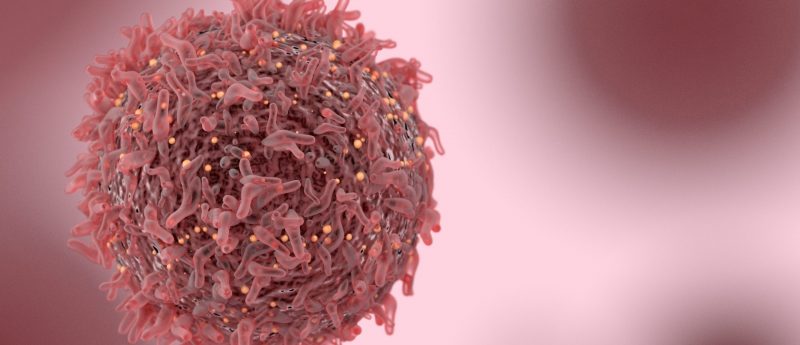Real-world evidence at AACR 2019

I recently attended AACR 2019 and wanted share my highlights from the program that covered real-world evidence in relation to oncology and oncologic research.
Real-world evidence (RWE) has gained much interest in the field of oncology as researchers and clinicians alike increasingly look for alternative sources whereby they can address clinical and policy-relevant issues that cannot be answered from clinical trial data alone. At the American Association for Cancer Research (AACR) Annual Meeting (29 March—3 April, GA, USA) this theme drew attention, with talks focused on the potential applications of RWE. Below I have highlighted key talks from the congress on this topic.
SS20 – Using real-world data to generate potential synthetic control arms: The AACR Project GENIE Experience
A key RWE session at AACR provided an update on the status of the AACR Project Genomics Evidence Neoplasia Information Exchange (GENIE) Consortium. The GENIE project involves combining existing and ongoing clinical genotyping data from participating institutions into a single registry. This real-world dataset allows researchers and clinicians to select clinical outcomes. Key applications of this registry include drug discovery, biomarker discovery and validation, clinical trial feasibility, natural history studies and much more.
Within this session, two studies were outlined that have utilized the GENIE registry — the first described a clinicogenomic registry, which was used to define the natural history of AKT1E17KMutant ER+/HER2- metastatic breast cancer (MBC) whilst the second explored the natural history and clinical characteristics of ERBB2 mutant hormone receptor-positive breast cancers.
AACR Project GENIE that includes 60,000 pts is very useful to study #rare #genomic populations such as AKT1 or ERBB2 mutant BC data available here 👉 https://t.co/weDDgwudhw #bcsm #RareDiseases #AACR19 @cbioportal by @DHymanMD pic.twitter.com/5RXqswOCdJ
– Bastien Nguyen (@bastien_nguyen) March 31, 2019
To round off the session, Raji Sridhara from the US Food and Drug Administration (FDA) explained the framework for the RWE program, which has been created for evaluating the potential use of RWE to help support the approval of a new indication for a drug already approved or to help support or satisfy drug post-approval study requirements.
New Year’s Resolution #6: Facilitate genomic data sharing. Most mutations identified by tumor genomic profiling are variants of unknown significance. @sloan_kettering + @AACR project GENIE seek to better understand these variants through collaborative translational research. pic.twitter.com/PK14nGD47K
– David B. Solit, MD (@DSolit) December 28, 2018
PL01. Opening Plenary: Achieving Equitable Patient Care through Precision and Convergent Cancer Science
In the first plenary session (March 31, 9:45 AM—12:15 PM in Hall A of the Convention Center) David B Solit (Memorial Sloane Kettering, NY, USA) summarized current indications for tumor profiling as well as the use of cell-free DNA to guide routine clinical care and enrollment onto clinical trials. He also presented insights from an institution wide molecular profiling initiative, which now includes over 30,000 patients, with a focus on hurdles to sharing genomic data in ‘big data’ analyses.
In this session, a presentation by Peter Kuhn and Jorge Nieva (both USC, CA, USA) looked into how digitizing clinical assessment can be used for the evidence-based prediction of outcomes.
PO.CL10.01 – Supportive care and survivorship research/ outcome research
On the final day of AACR, a session on supportive care and survivorship outlined several research projects that are utilizing RWE. Presentations included abstracts exploring whole-genome sequencing in childhood cancer survivors, pregnancy and breast cancer outcomes and how to determine optimal follow up scans for advanced malignancies.
Physician (Peter Kuhn) vs. Physicist (Jorge Nieva) give a tag-team presentation at the @AACR opening plenary! A true partnership and synergistic progress! Characterize the tumor AND the patient…addressing disparities in cancer treatment #AACR19 pic.twitter.com/JPt32jSg9U
– Melissa B Davis (@MeliD32) March 31, 2019
Digitizing cancer & big data – need a binary decision point: Dr. Peter Kuhn and Dr. Jorge J. Nieva present “Physicist vs. physician ” #AACR19 #cancerresearch #precisiononcology pic.twitter.com/xNSstR3UQB
– Xinli Liu, PhD (@DrXinliLiu) March 31, 2019
Key news headlines from AACR
- LOXO-195 shows promise as therapy for tumors with acquired NTRK resistance
- Rucaparib produces clinical response in certain pancreatic cancer patients
- Surgery associated with increased survival in HER2+ Stage IV breast cancer patients
- Pembrolizumab demonstrates promise in small-cell lung cancer patients
- Mesothelin targeted CAR-T cell therapy — a possible treatment for solid tumors
Learn more about RWE in oncology on

Highlights include:
I-O Optimise: a multinational program providing real-world insights into lung cancer management
This article describes the design and creation of I-O Optimise, a project that will collect real-world evidence about patients with lung cancer across many different countries. A specific structured approach was followed to select real-world data sources (RWDS) for inclusion in I-O Optimise and, as of October 31 2018, seven RWDS were included, providing information on more than 45,000 patients per year with lung cancer.
GioTag: results of real-world study of treatment sequencing in EGFR mutation-positive lung cancer
GioTag is a non-interventional study based on existing medical records of patients with EGFR mutation-positive advanced NSCLC treated with afatinib followed by osimertinib for T790M resistance mutation patients. In this paper find out the results of this observational real-world study and how the findings could increase our understanding of how sequencing of tyrosine kinase inhibitors can extend chemotherapy-free treatment time.
